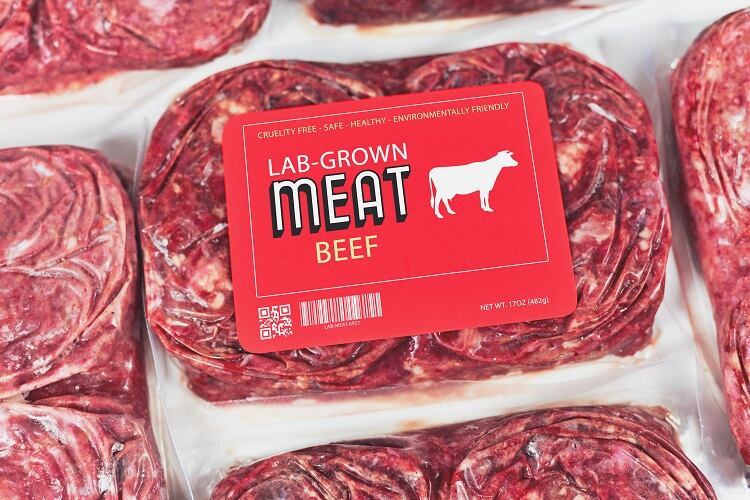The 18,000 square foot site contains a pilot plant, R&D facility, office space and an innovation kitchen. It is located near to the campus of the Oxford University Engineering Department, from which the company was originally spun-out.
The pilot manufacturing plant is home to a terminal 600L bioreactor that will enable the production of over 6,000 lbs (2.8 tonnes) of cultivated meat per year. ‘More importantly’, Ivy Farm said, this will provide a platform for the company to fine-tune its novel manufacturing process.
“Making real meat in a new and more sustainable way has never been done at real scale and so the completion of the pilot plant, R&D facility, new office and innovation kitchen represents a really exciting milestone on our growth journey as a company,” Ivy Farm CEO Rich Dillon said.
The ‘next phase’ of development
The opening of the pilot plant is the ‘next phase’ in the advancement of Ivy Farm’s technology as it looks to boost its R&D capabilities. The company aims to tackle some of the biggest challenges still facing emergent cultivated meat technology by driving down costs, scaling up production and making cultivated meat ‘accessible to consumers on a global scale’ in the ‘near future’.
“By building Europe’s largest pilot plant and by expanding our R&D facilities, we have taken a huge step towards our mission of producing guilt-free, real meat that’s good for the planet, people and animals,” Dillon continued.
In addition to the expanded R&D capabilities, the new offices can accommodate a 50-strong and expanding team of experts, while the innovation kitchen gives Ivy Farm’s team of inhouse food scientists and development chefs a space to cook and experiment with the company’s mincemeat products.
Sustainable by design
For a company that has made offering more sustainable solutions its raison d’etre, sustainable building design and self-sufficiency have been put at the heart of the development.
This has included using recyclable materials in the building’s cladding, solar panel arrays with the aim of generating a large proportion of energy used by the plant on site, EV chargers for staff vehicles, as well as other smart energy efficiency features.
Ivy Farm grows pork stem cells in large fermentation tanks in order to produce meat that it says has a ‘healthier nutritional profile and a more sustainable greenhouse gas footprint’.
Highlighting the environmental and economic benefits of investing in cultured meat innovation, Ivy Farm pointed to a recent report by CE Delft, which states that cultivated meat would reduce carbon emissions by up to 92% and reduce land use by as much as 95% when compared to traditional agricultural methods. A recent study by Oxford Economics also projects that the industry could add £2.1 billion to the UK economy and create more than 16,500 jobs, including 8,300 skilled roles, by 2030.
The food tech start-up has raised over $30m to date.




